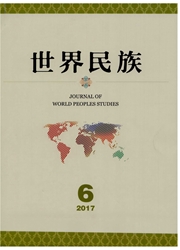

 中文摘要:
中文摘要:
作为一个异质化程度非常高的国家,印度能够在民主制度之下维持国家的统一和正常运转,是多民族国家治理研究中非常重要的一个案例。印度多民族国家建设的成效来源于制度的有效性和稳定性,民主和联邦主义为印度多民族国家的凝聚提供了重要的制度纽带:宪法设计中体现了对多元的包容与对统一的诉求,提供了基本的共识基础和权利保障;民主制体现了印度人民对民主价值观的共同追求,成为联结多样性的纽带和多元化表达的场域;联邦主义则为印度缓解民族自治要求和民族分离主义带来的压力保留了一定的制度空间和灵活性,是协调差异的制度性基础。但是,毋庸置疑,印度对社会分裂程度的控制仅停留在一个相对较低的水平上,印度的多民族国家治理仍面临一些问题,如民族主义政党在多党竞争的民主制度下崛起、地方权力增长带来了显在或潜在的分裂威胁、公民平等流于形式等。
 英文摘要:
英文摘要:
India,as a country of high heterogeneity,is a very important case in the researches of multinational- state governance for her maintaining the unity and normal operation of the state under democracy.The construction of multinational- state in India was benefited from the effectiveness and stability of the institution.The constitutional democracy and the federalism provide an important institutional link for the agglomeration of India.The Constitution reflects its embracing diversities and appeal for unification,which provides the basic consensus and protection of rights.Democracy embodies the common pursuits for democratic values of Indian people,which links diversity and the site of plural expressions.Federalism is the institutional basis for coordinating differences and reserving a certain institutional space and a certain degree of flexibiHty for relieving the pressures from ethnic separatism and demands of autonomy.However,there are still some problems,such as the rise of nationalism political party,the explicit or potential threats brought by the increased local power,and the formation of equal citizenship.
 同期刊论文项目
同期刊论文项目
 同项目期刊论文
同项目期刊论文
 期刊信息
期刊信息
